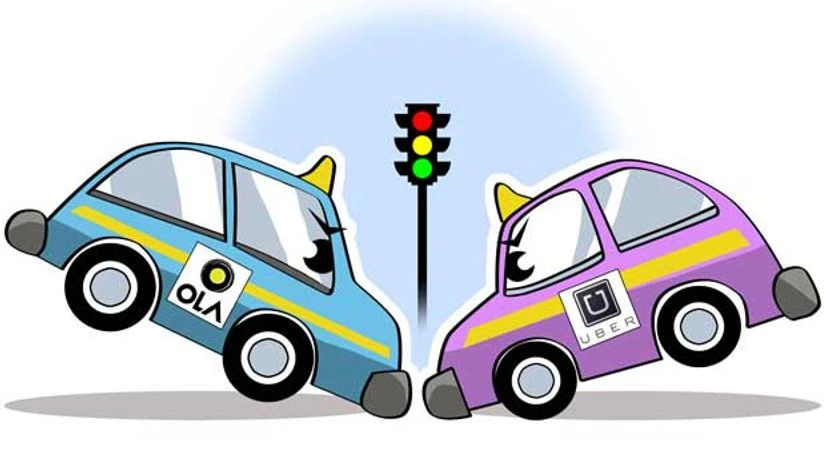Clamping down on surge pricing by app-based cab service providers like Ola and Uber, the Delhi high court on Thursday set August 22 as the deadline after which such entities and other taxi operators cannot charge passengers more than the government-fixed rates.
Surge pricing: During periods of excessive demand, when there are more riders than drivers, ride-hailing services increase normal prices to encourage drivers to flood the zone.
The August 22 deadline was fixed after Uber told the court it needs 10 days to make changes to its software to ensure passengers are not charged more than the rates stipulated by the Delhi government in June 2013.
Also Read
Ola told the court it has already stopped charging passengers more than the notified rates.
According to the prescribed rates, fare for economy radio taxi is Rs 12.5 per km (kilometre), Rs 14 per km for non-AC black and yellow top taxi, and Rs 16 per km for AC black and yellow top taxi. AC is air conditioning.
The notified fare for radio taxi cabs (distinguished by an LCD board on rooftop displaying “radio taxi”) is Rs 23 per km. Additional night charge (25 per cent of the fare) is applicable between 11 pm and 5 am.
While addressing the issue of surge pricing, the court observed that while taxi aggregators like Ola and Uber reduce the pressure on public transport, "a uniform policy must be devised" for regulating them.
It directed a special committee, set up by the Centre to examine all issues related to existing permits given to taxis and cab aggregators, to also include one senior official each from the Ministry of Information Technology, Central Pollution Control Board and Delhi Traffic Police apart from obtaining advise of a transport expert from Niti Aayog.
The direction came after central government standing counsel Manish Mohan and Kirtimaan Singh submitted that the Ministry of Transport had set up the panel on May 25, 2016 to address licence issues of taxis and aggregators across India.
The panel was also asked by the court to keep in mind a draft policy being prepared by the Delhi government for regulating aggregators, give a proper hearing to all stakeholders and file a final report in three months.
Justice Manmohan advised the transport department of the Delhi government, the Union transport ministry and Delhi Police to work together to ensure "seamless flow of data" regarding people applying for licence or permit to drive taxis.
The court was of the view that the incidents of crimes against women in cabs occurred because lack of availability of such data with the taxi operators and aggregators, as the accused in such cases "had a criminal past".
It said that while coming out with any policy, the National Capital Region (NCR) should be treated as one area, instead of treating Delhi separately from neighbouring cities of Uttar Pradesh and Haryana as cab companies are based in these cities and ply between them.
The court was hearing a number of petitions filed by an association of radio taxi operators and Ola.
While the association has alleged that Ola and Uber are operating without any licence, overcharging customers and the government is not doing anything about it, Ola has accused Uber of over-charging and not complying with court orders.

)
